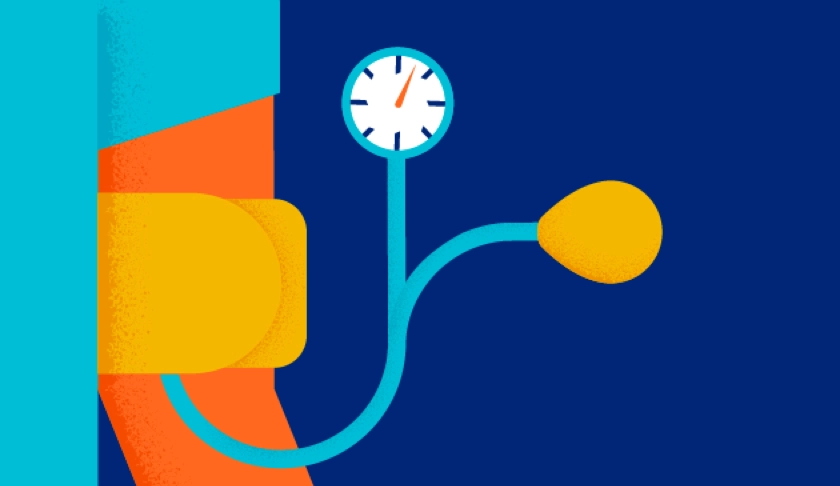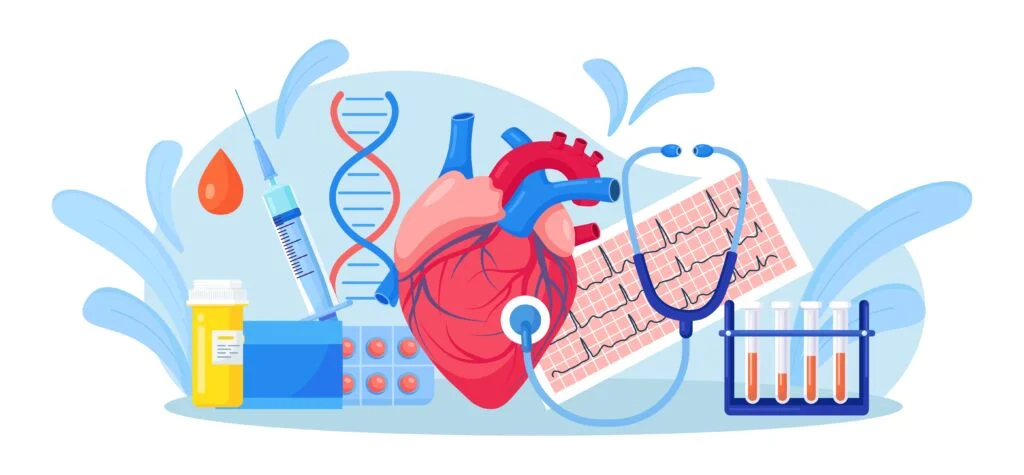Managing Hypertension: Tips for Healthy Blood Pressure

Understand the causes and complications of high blood pressure, and discover lifestyle changes and medications to manage hypertension.
Hypertension, commonly known as high blood pressure, is a prevalent health condition that affects millions of people worldwide. Left untreated, it can lead to severe complications such as heart disease, stroke, and kidney problems. However, with the right approach, hypertension can be effectively managed, reducing the risk of associated health issues. In this article, we will explore the causes and complications of high blood pressure, along with lifestyle changes and medications that can help individuals maintain healthy blood pressure levels.
Understanding Hypertension
Blood pressure is the force exerted by the blood against the walls of the arteries as it flows through them. It is measured in millimeters of mercury (mmHg) and consists of two numbers: systolic pressure (the top number) and diastolic pressure (the bottom number). A normal blood pressure reading is typically around 120/80 mmHg.
Hypertension occurs when there is persistent elevation of blood pressure above the normal range. This condition can be caused by various factors, including genetics, lifestyle choices, and underlying health conditions such as obesity, diabetes, and kidney disease. Additionally, age, stress, and certain medications can also contribute to the development of hypertension.
Complications of High Blood Pressure
Uncontrolled hypertension can have serious consequences for health. It puts strain on the heart, leading to an increased risk of heart attack, heart failure, and other cardiovascular problems. High blood pressure can also damage the arteries, increasing the likelihood of stroke and peripheral artery disease. Moreover, hypertension is a leading cause of kidney disease, as it can impair the function of the kidneys over time.
Managing Hypertension Through Lifestyle Changes
Fortunately, many cases of hypertension can be managed through lifestyle modifications. Adopting a healthy lifestyle can help lower blood pressure and reduce the risk of complications. Here are some tips for managing hypertension:
Maintain a Healthy Diet
Aim to consume a diet rich in fruits, vegetables, whole grains, and lean proteins while limiting sodium, saturated fats, and added sugars. The Dietary Approaches to Stop Hypertension (DASH) diet, which emphasizes fruits, vegetables, and low-fat dairy products, has been shown to effectively lower blood pressure.
Exercise Regularly
Engage in regular physical activity to help maintain a healthy weight and lower blood pressure. Aim for at least 150 minutes of moderate-intensity aerobic exercise, such as brisk walking or cycling, per week, along with muscle-strengthening activities on two or more days per week.
Maintain a Healthy Weight
Being overweight or obese increases the risk of hypertension. Losing even a small amount of weight can have a significant impact on blood pressure. Aim for a body mass index (BMI) within the healthy range (18.5 to 24.9).
Limit Alcohol Intake
Excessive alcohol consumption can raise blood pressure. Limit alcoholic beverages to moderate levels, which is generally defined as up to one drink per day for women and up to two drinks per day for men.
Manage Stress
Chronic stress can contribute to hypertension. Practice stress-reduction techniques such as deep breathing, meditation, yoga, or tai chi to help lower stress levels and promote relaxation.
Medications for Hypertension: In addition to lifestyle changes, some individuals may require medication to control their blood pressure. There are several classes of medications available to treat hypertension, including:
Diuretics: These medications help the body eliminate excess sodium and water, reducing blood volume and lowering blood pressure.
ACE Inhibitors and ARBs: These medications relax blood vessels, making it easier for blood to flow and lowering blood pressure.
Calcium Channel Blockers: These medications prevent calcium from entering the muscle cells of the heart and blood vessels, leading to relaxation of the arteries and lower blood pressure.
Beta-Blockers: These medications reduce the heart rate and the heart's output of blood, resulting in lower blood pressure.
It's important for individuals with hypertension to work closely with their healthcare provider to determine the most appropriate treatment plan, which may include a combination of lifestyle changes and medications.
Hypertension is a common but serious health condition that requires proactive management to reduce the risk of complications. By making healthy lifestyle choices, such as following a nutritious diet, exercising regularly, maintaining a healthy weight, limiting alcohol intake, and managing stress, individuals can help control their blood pressure levels. In some cases, medications may also be necessary to achieve optimal blood pressure control. With the right approach, hypertension can be effectively managed, allowing individuals to lead healthier lives.
Related Posts

Fatherhood has been shown to alter the structure and function of men's brains, as indicated by MRI scans conducted before and after becoming a father.

Understanding Your Blood Test Results: A Toxicologist's Guide to Interpreting Them

An Excess of Empathy Can Be Bad for Your Mental Health



